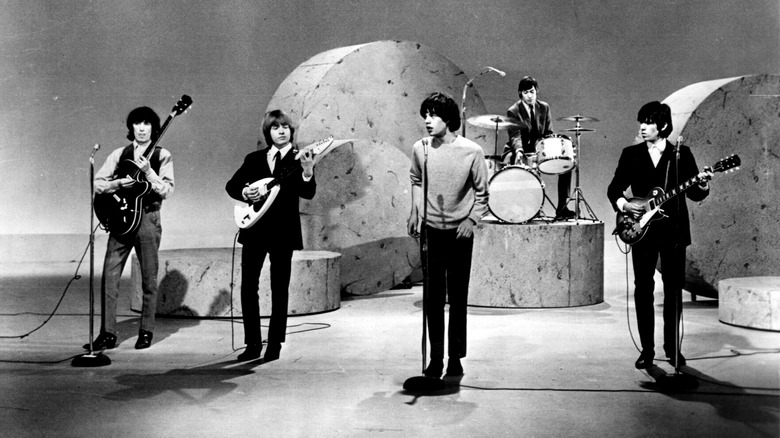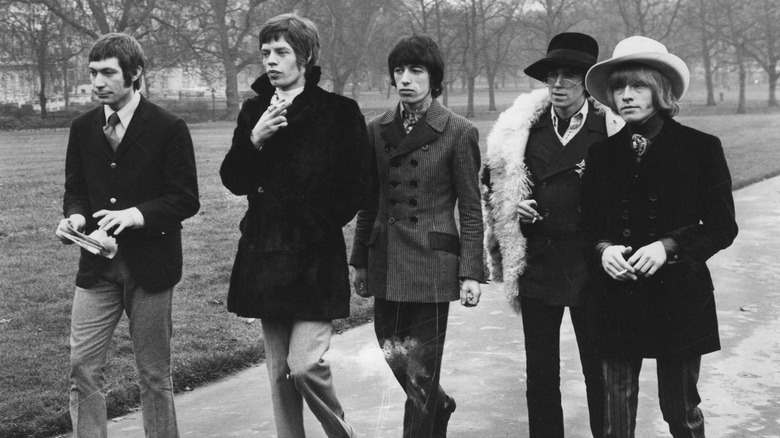Why The Rolling Stones Were Once Censored On American Television
The Rolling Stones are one of the most successful and popular rock bands in history, who were never far from the headlines, both good and bad. Their time across the pond was met with controversy, as their suggestive lyrics and hedonistic lifestyles clashed with the prude, sensitive sensibilities of many Americans in the 1960s. The moralistic battle came to a head when the legendary band played on the hit variety show "The Ed Sullivan Show" and were forced to change the lyrics of their latest single.
According to UDiscoverMusic, the Stones released "Let's Spend the Night Together", with the B-side "Ruby Tuesday," on January 13, 1967. The next day it was released stateside and the next the band was set to play on "The Ed Sullivan Show." Despite the band's immense popularity and the huge publicity that would come from a new single performed live to a nationwide audience, Sullivan gave the Stones an ultimatum: change the lyrics or don't perform.
The song continued to be censored afterward
Ed Sullivan was uncomfortable with the implication in the lyric "let's spend the night together," and told the band to change it to "let's spend some time together," hoping that the family-friendly lyric would appease his more sensitive viewers (via Billboard). Jim Morrison of The Doors had famously defied Sullivan by keeping the lyric "girl we couldn't get much higher" not too long before The Rolling Stones, and found his band banned from the show afterward. The Rolling Stones agreed to change the lyric, although frontman Mick Jagger can be seen rolling his eyes during the altered line.
That was not the end of censorship for the single in the United States. Many radio stations bleeped out the word "night" during plays, and some completely banned the song from the airwaves. As a result, "Ruby Tuesday" became the bigger hit stateside, climbing to the top of the charts while "Let's Spend the Night Together" couldn't do better than 55th. In their homeland, the song did not receive the same censorship treatment, although the band remained controversial for different reasons, including a lip-sync performance on "Sunday Night at the London Palladium."

